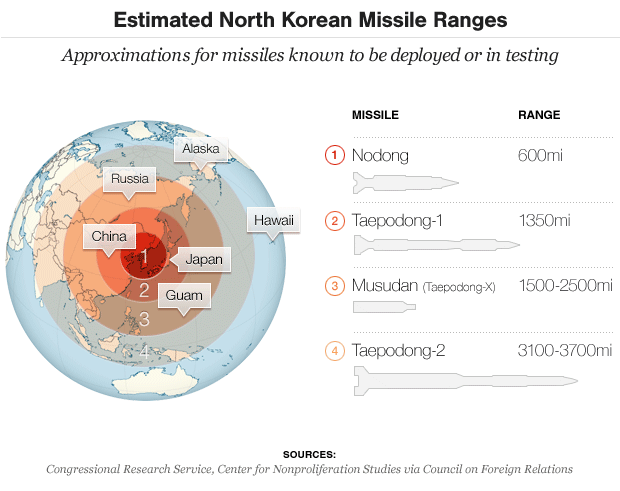North Korea pulls missiles from launch site
Two Musudan intermediate-range missiles have been packed up and taken away from their launch site on the east coast of North Korea, which U.S. intelligence has been monitoring for the past several weeks, CBS News correspondent David Martin reports.
These are mobile missiles so the fact that they've left one launch site doesn't mean they can't be moved to another and fired with little or no warning, Martin reports.
The movement of the missiles away from the launch site coincides with the end of U.S.-South Korea exercises and the beginning of the spring planting season in the North when much of the military goes back to the farm, Martin reports. It also comes just a few days before President Obama's summit with South Korea's new president.
Whatever the reason, Pentagon spokesman George Little, who would not confirm that the missiles have been moved, said "what we have seen recently is a provocation pause."
South Korean President Park Geun-hye told CBS News' Margaret Brennan on Monday that South Korea will not stand for any provocations from North Korea, no matter how small.
"We will make them pay," Park said.
The last seven South Koreans stationed at a jointly run factory park in North Korea pulled out Friday, silencing the complex for the first time since it was launched nine years ago in a seemingly distant era of reconciliation.
The complex in the town of Kaesong, just north of the Koreas' heavily fortified border, was the rivals' only remaining symbol of rapprochement. It had employed more than 53,000 North Korean workers and hundreds of South Korean managers until last month, when Pyongyang started gradually blocking its operations.
- Pentagon: North Korea moving towards nuclear goal
- North Korea: Nuclear weapons are the nation's life
- Poll: Americans against U.S. intervention in Syria, North Korea
The last seven South Koreans left after negotiating taxes and the back salaries of North Korean workers. Their departure leaves the Koreas with virtually no official communication channel.
It also could spell the end of an experiment that many saw as a bridge between the divided Koreas that was meant to help pave the way for a future unified Korea by proving that workers from two polar opposite economic systems could collaborate. Through both liberal and conservative governments in Seoul, Kaesong survived past tensions, including attacks blamed on North Korea in 2010 that killed 50 South Koreans.
A former South Korean official who headed the group that negotiated with the North on wages said he repeatedly called for the resumption of operations at Kaesong during the talks. Hong Yang-ho told reporters he expected future discussions but didn't elaborate.
The withdrawal removes one of the last points of contact between the Koreas, which are still technically in a state of war because the 1950-53 Korean War ended with a cease-fire, not a peace treaty. Seoul had used phone lines connected to a South Korean-run management office at Kaesong to exchange messages with North Korea.
As tensions between the countries soared early last month, North Korea suspended operations at Kaesong, barring South Korean factory managers and trucks carrying supplies from entering the park. It later withdrew the North Koreans working at 123 South Korean companies in Kaesong's special economic zone.
Amid a weekslong torrent of threats, including North Korean warnings of impending nuclear and missile strikes, the Kaesong shutdown was the country's most significant expression of anger over South Korean-U.S. military drills that ended last Tuesday and U.N. sanctions imposed last month over a February nuclear test, North Korea's third. The North has somewhat eased that warlike rhetoric of late and shown tentative signs of willingness to talk.
